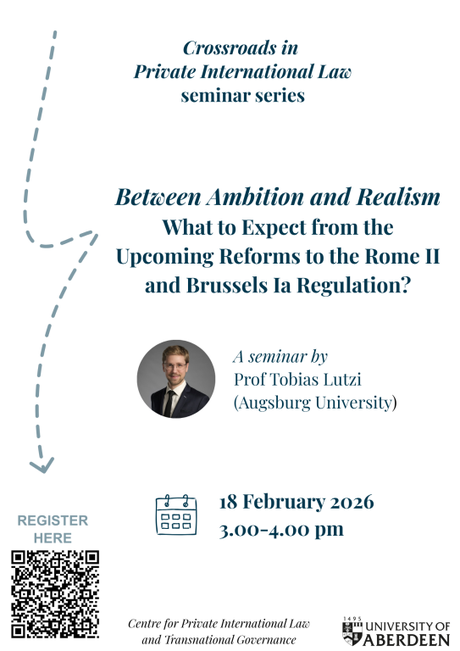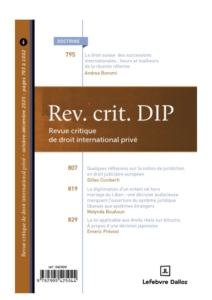Views
Online Symposium on Recent Developments in African PIL (VI) – Proof of Foreign Law and the Fragility of Foreign Marriages in Ghanaian Courts

As part of the second online symposium on recent developments in African private international law, we are pleased to present the sixth contribution, kindly prepared by Theophilus Edwin Coleman (University at Buffalo School of Law, New York (USA) & Senior Research Associate, RCPILEC, University of Johannesburg, South Africa).
From Daddy to Zaddy or Both? Proof of Foreign Law and the Fragility of Foreign Marriages in Ghanaian Courts – Reflections on Akosua Serwaah Fosuh v. Abusua-Panin Kofi Owusu & 2 Others, Suit No. GJ12/20/2026
Online Symposium on Recent Developments in African PIL (V) – Cross-border employment, competition and delictual liability merge in the South African High Court: Placement International Group Limited v Pretorius and Others

As part of the second online symposium on recent developments in African private international law, we are pleased to present the fifth contribution, kindly prepared by Elisa Rinaldi (University of Pretoria, South Africa) on Cross-border employment, competition and delictual liability merge in the South African High Court: Placement International Group Limited v Pretorius and Others.
Online Symposium on Recent Developments in African PIL (IV) – Party Autonomy, Genuine Connection, Convenience, Costs, Privity, and Public Policy: The Kenyan High Court on Exclusive Jurisdiction Clauses

As part of the second online symposium on recent developments in African private international law, we are pleased to present the fourth contribution, kindly prepared by Anam Abdul-Majid (Advocate and Head of Corporate and Commercial Department, KSM Advocates, Nairobi, Kenya) and Kitonga Mulandi (Lawyer, KSM Advocates, Nairobi, Kenya), on Party Autonomy, Genuine Connection, Convenience, Costs, Privity, and Public Policy: The Kenyan High Court on Exclusive Jurisdiction Clauses
News
Hybrid Lecture: Venezuela’s Oil, Between a Rock and a Hard (Arbitration) Place (UCL, 26 Feb 2026, 1pm)
Crossroads in Private International Law Webinar with Tobias Lutzi on “Crossroads in Private International Law Seminar on the Reform of EU Private International Law” at the University of Aberdeen
The Centre for Private International Law & Transnational Governance of the University of Aberdeen is continuing its Crossroads in Private International Law webinar series with a talk by Tobias Lutzi (University of Augsburg) titled ‘Between Ambition and Realism – What to Expect from the Upcoming Reforms to the Rome II and Brussels Ia Regulation?’:
The Centre for Private International Law & Transnational Governance invites you to attend the next seminar in our Crossroads in Private International Law seminar series. You can find the link to register at the bottom of this page.
Prof Tobias Lutzi (Junior Professor for Private Law at Augsburg University) will give a seminar on the reforms to the Rome II and Brussels Ia Regulation. Prof Lutzi has kindly provided the following abstract:
Last year, the EU Commission formally kicked off the process of reforming two key instruments of EU Private International Law, identifying potential areas for reform and setting out some overarching policy goals. In 2026, the Commission will face the more difficult decision of which of those areas to actually focus on. This talk will discuss the respective merits of those areas of reform, highlighting the tension between ambition and realism that will shape the Commission’s work.
We are looking forward to welcoming you online or on campus!
Additional information and the link to register can be found here.
Revue critique de droit international privé – Issue 2025/4
Written by Hadrien Pauchard (assistant researcher and doctoral student at Sciences Po Law School)
The fourth and last issue of the Revue Critique de droit international privé of 2025 has just been released. It contains four articles, eight case notes, and six book reviews. In line with the Revue Critique’s policy, the doctrinal part will soon be made available in English on the editor’s website (for registered users and institutions). Read more


